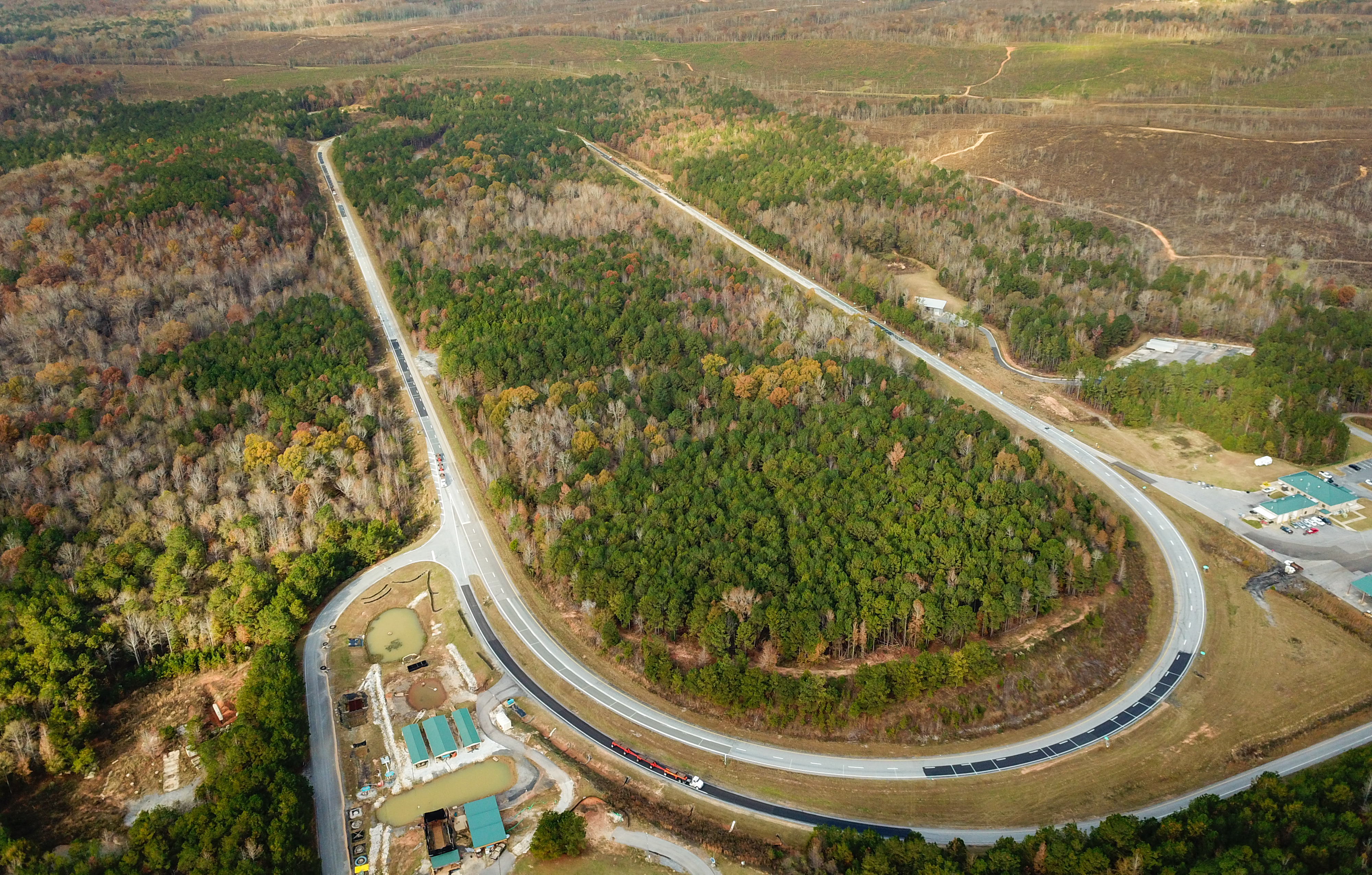Auburn’s National Center for Asphalt Technology works to improve nation’s roadways
Auburn University is transforming roads across the country.
For over three decades, Auburn’s National Center for Asphalt Technology, or NCAT, has focused on evaluating and developing new technologies that make the nation’s roads smoother, quieter, safer, longer lasting and more economical.
Home to a track where engineers and students develop and test innovative road-surfacing methods, NCAT’s research centerpiece is a high-speed, full-scale accelerated asphalt pavement testing facility. Located 30 minutes from Auburn’s campus, the 1.7-mile oval is comprised of experimental test sections sponsored cooperatively by highway agencies and private industry. In this real-world laboratory, drivers of a heavy five-truck fleet apply more than a decade of typical interstate traffic in just two years, providing fast and implementable research to meet the demands of maintaining America’s highway infrastructure.
“We can conduct high-risk experiments here while avoiding any danger to the traveling public on open roads,” explains Jason Nelson, test track manager. “We’re developing tests and specifications that can be used to design more sustainable pavements with high amounts of recycled materials. States can use these tests as part of their design procedures to help determine how a road will perform in regard to rutting resistance, resistance to cracking and long-term durability.
“This will ultimately lead to better roads for drivers across the country.”
Agencies across the country are also using NCAT’s research findings to preserve their roadway networks and maximize their budgets. A major study focusing on pavement preservation, the concept of applying the right treatment to the right road at the right time, is underway to quantify the life-extending and condition-improving benefits of various treatments that can be used from county roads to major highways. Through a partnership with the Minnesota Department of Transportation, these results will be applicable to roads in both northern and southern U.S. climates.
NCAT’s achievements don’t end at its practical research. Each year, its engineers transfer the latest advancements to professionals worldwide through training, workshops, videos, presentations, publications and outreach activities. Since 1988, its professor training course has provided over 500 college professors clear and up-to-date resources to use in teaching asphalt materials, pavement design and construction courses to undergraduate civil engineering students.
“One of our greatest accomplishments has been inspiring the next generation of leaders in asphalt pavement technologies,” said Randy West, NCAT director. “Although we’ve built a reputation from the quality of our research, our success is truly measured in people. Students at Auburn are able to gain real-world experience by working in our co-op program and taking courses led by our outstanding faculty, and our former graduate students are rapidly becoming industry leaders throughout the world.”
NCAT attracts more than $6 million in research funding annually and remains committed to its mission of providing innovative, relevant and implementable research, technology development and education that advances safe and economically sustainable asphalt pavements—from Auburn to the entire nation.
BY CHRISTINE HALL

The National Center for Asphalt Technology is how Auburn University is transforming roads across the country. The 1.7 mile oval track is comprised of experimental test sections sponsored cooperatively by highway agencies and private industry. Drivers of a heavy five-truck fleet apply more than a decade of typical interstate traffic in just two years, providing fast and implementable research to meet the demands of maintaining America’s highway infrastructure.
Categories: Transportation
Back to Articles




